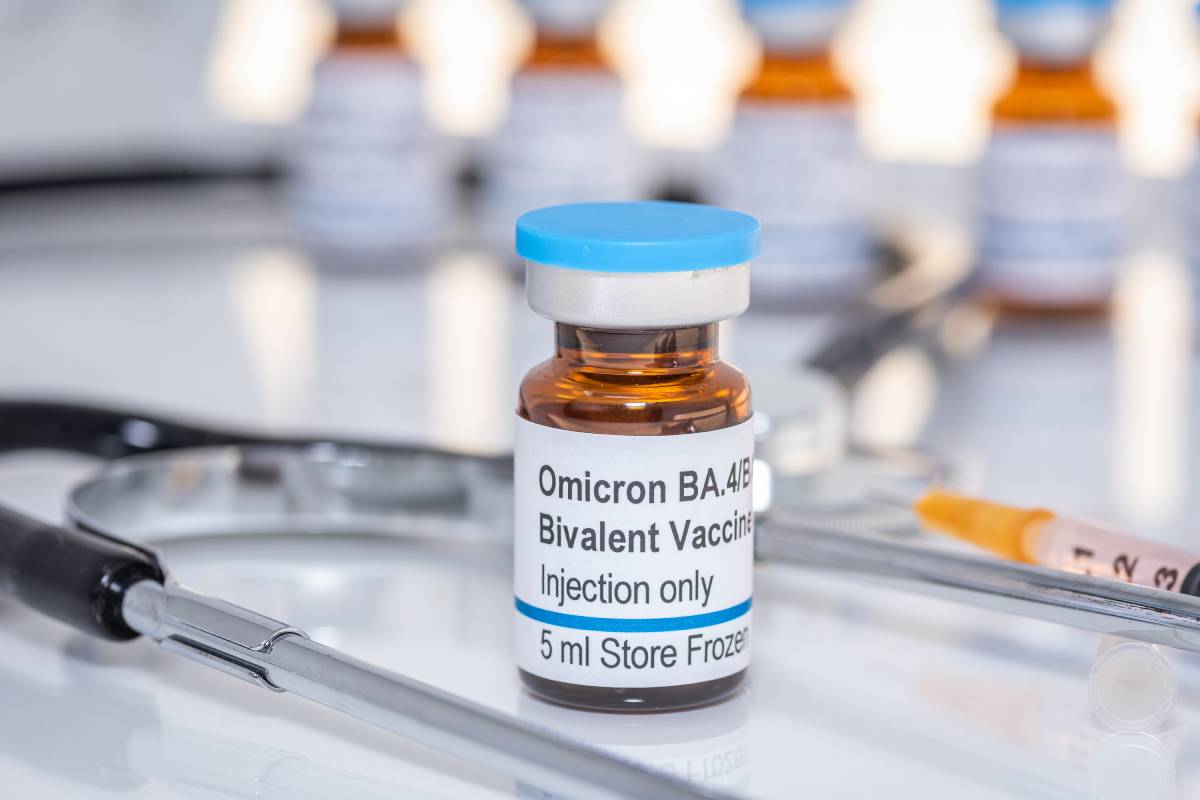Efficacy of the Bivalent COVID-19 Booster

Amidst a surge of Omicron variant COVID infections in August 2022, the FDA gave emergency use authorization to a bivalent mRNA shot that serves as a booster to the existing vaccine regimen of monovalent shots. The updated booster utilizes components from both the SARS-CoV-2 ancestral strain and Omicron BA.4/BA.5 strains to provide additional benefits during times when the Omicron COVID variant and its sublineages are predominant.
A breakthrough clinical study in the Morbidity and Mortality Weekly Report published by the CDC found that the bivalent booster is relatively more effective at preventing symptomatic COVID infection than the monovalent booster dose, even with 2-4 additional monovalent doses (1). Because vaccine protection decreases over time, the study also found that the relative protective benefits increase as the time between receiving the monovalent vaccine and receiving the booster increases.
The results found in the bivalent efficacy study align with the official vaccination schedule recommendations of the CDC and FDA. The immunization time schedule was found to be significant: the bivalent booster should be administered at least two months after receiving the most recent monovalent vaccine dose for maximum benefits (1). Furthermore, the booster “restore[s] protection observed to wane after monovalent vaccine receipt, as demonstrated by increased [relative vaccine effectiveness] with longer time since the most recent monovalent dose” (1). This indicates that it is crucial to receive the bivalent booster dose to reestablish vaccine effectiveness against symptomatic COVID infection.
The bivalent booster has also been clinically tested in response to the now prevalent XBB.1.5 COVID strain in a study published by the New England Journal of Medicine. “Neutralization against BA.2.75.2, BQ.1.1., and XBB from mRNA Bivalent Booster” utilized a focus reduction neutralization test to assess relative antibody responses of monovalent and bivalent boosters to different COVID subvariants (2). The researchers found that “Persons who received the BA.5-containing bivalent booster had better neutralizing activity against all Omicron subvariants (especially against BA.2.75.2, BQ.1.1, and XBB) than those who received either one or two monovalent boosters” (2). Not only does the bivalent booster provide protection against Omicron strains, but it also provides a wide guard against later sublineages like XBB and XBB.1.5.
The effectiveness of monovalent vaccines in preventing hospitalization decreases over time, which significantly impacts high-risk communities (3). A recent study published by the CDC examines if the bivalent booster is capable of reducing hospitalization in people aged older than 65 years. In this high-risk age group, the bivalent booster “provided 73% additional protection against COVID-19 hospitalization compared with past monovalent mRNA vaccination only” (3). With the prevalence of Omicron strains and new sublineages that can evade monovalent vaccine immunity, high-risk communities should receive the bivalent booster to lessen the risk of severe COVID sickness and hospitalization.
Staying up to date with immunizations that can protect against the various COVID strains is an important step to building immunity against serious infection. Multiple clinical research studies determined the efficacy of the bivalent booster with real-world evidence of increased immunity against severe infection. Data supports the CDC recommendations of receiving the bivalent booster to provide robust protection in times where Omicron continues to be dominant and circulate around the globe.
References
- Link-Gelles R, Ciesla AA, Fleming-Dutra KE, et al. (2 Dec. 2022). Effectiveness of Bivalent mRNA Vaccines in Preventing Symptomatic SARS-CoV-2 Infection — Increasing Community Access to Testing Program, United States, September–November 2022. Center for Disease Control: Morbidity and Mortality Weekly Report 2022;71:1526–1530. DOI: http://dx.doi.org/10.15585/mmwr.mm7148e1
- Davis-Gardner ME, Lai L, Wali B, et al. (21 Dec. 2022). Neutralization against BA.2.75.2, BQ.1.1., and XBB from mRNA Bivalent Booster. The New England Journal of Medicine. DOI: http://dx.doi.org/10.1056/NEJMc2214293
- Surie D, DeCuir J, Zhu Y, et al. (30 Dec. 2022). Early Estimates of Bivalent mRNA Vaccine Effectiveness in Preventing COVID-19-Associated Hospitalization Among Immunocompetent Adults Aged ≥65 Years — IVY Network, 18 States, September 8–November 30, 2022. Center for Disease Control: Morbidity and Mortality Weekly Report 2022;71:1625–1630. DOI: http://dx.doi.org/10.15585/mmwr.mm715152e2
